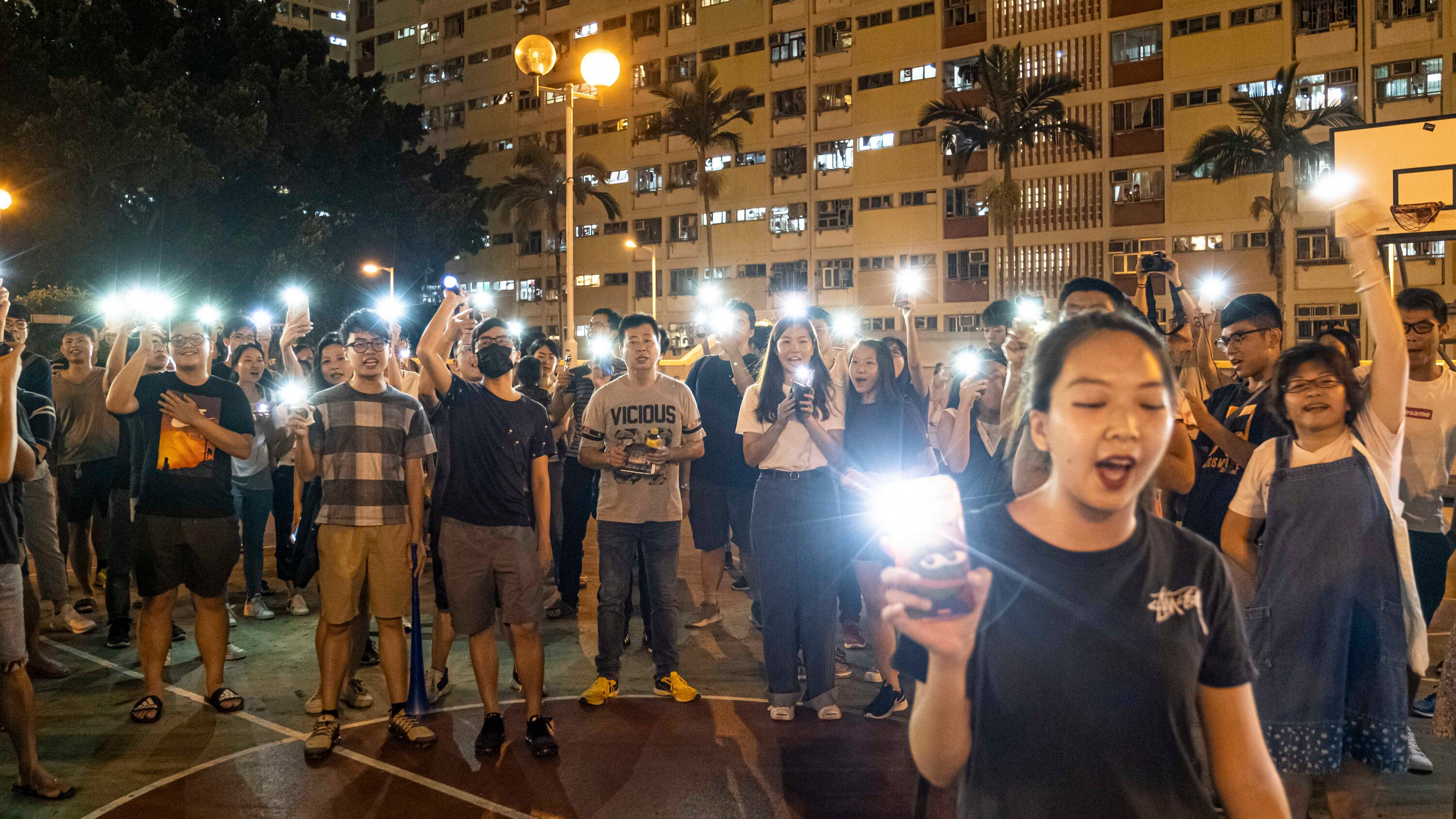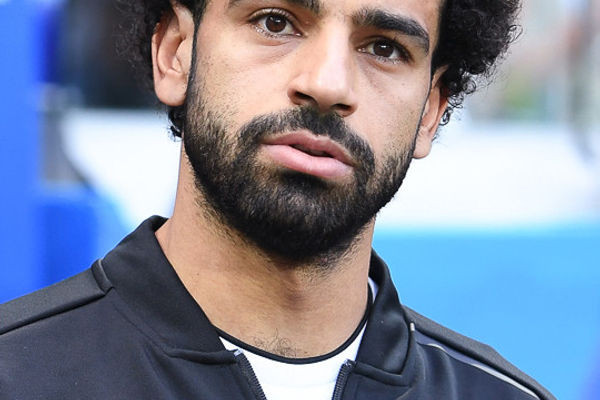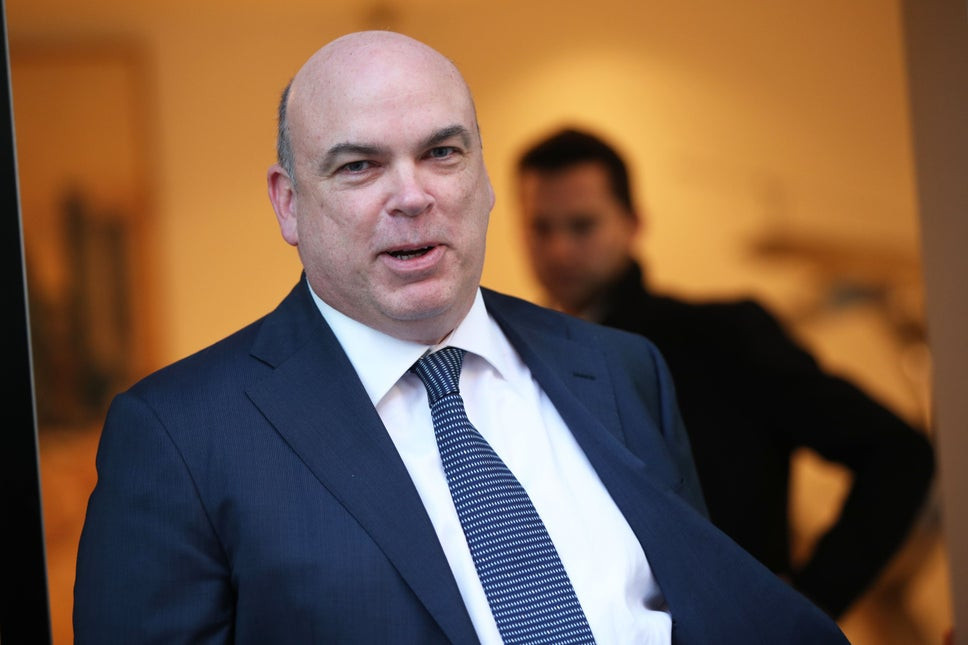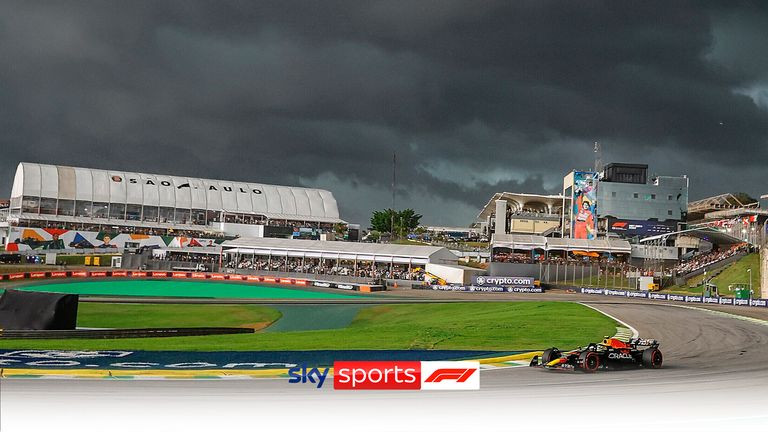In recent years, Hong Kong has faced more than its share of unwelcome news from the West, the latest being US lawmakers pushing punitive legislation that could lead to the closure of the city’s three trade offices in America. It is prudent, even essential, therefore, that city leaders look elsewhere for opportunities to enhance trade and commerce. As such, it was welcome to hear Hong Kong is actively pushing to deepen its ties to Southeast Asia, is striving to enter the world’s largest free-trade pact, and is poised to open a new trade office in Malaysia.
At the Post’s Hong Kong-Asean Summit on Friday, Chief Executive John Lee Ka-chiu vowed to do “everything” possible to expand cooperation with and investment in the 10-member Asean bloc, a “burgeoning region of growth”. He added that the city’s fourth Economic and Trade Office in Southeast Asia could open soon in Kuala Lumpur, adding to outposts in Singapore, Bangkok and Jakarta.
Lee rightly stressed the benefits Hong Kong could bring to the Regional Comprehensive Economic Partnership (RCEP) as a member – the grouping already includes Asean members. “The Greater Bay Area possesses enormous development potential for a world of investors to grasp, and Hong Kong is eager to help our friends from Asean in capitalising on that potential,” Lee told the summit, referring to Beijing’s plan grouping Hong Kong, Macau and nine southern mainland China cities into an economic powerhouse.
Hong Kong has long served as a gateway to and from the mainland, with its connectivity, common law courts, regional financial centre with sophisticated markets and simple, low taxes. Emerging ASEAN economies can leverage Hong Kong’s robust financial hub as a source of funding, notably green finance to bolster the ASEAN region’s green development drive.
HONG KONG – Hong Kong and ASEAN member states should tap potential areas in green finance, trade and logistics to foster mutually beneficial cooperation, a senior government official of Laos, the chair of the Southeast Asian bloc, said at a summit in Hong Kong on Friday.
“ASEAN and Hong Kong recognise each other as critical and indispensable partners in realising our respective visions,” Mr Phouthanouphet said in his address to the annual gathering.
Emerging ASEAN economies can leverage Hong Kong’s robust financial hub as a source of funding, notably green finance to bolster the ASEAN region’s green development drive.
In 2023, the total amount of green and sustainable debt issued in Hong Kong surpassed US$50 billion. Out of this, the total amount of green and sustainable bonds arranged for issuance in the city ranked first in the Asian market, accounting for 37 percent of the total.
ASEAN, as a growing global manufacturing and trade hub, offers investors a wide range of opportunities.
“There is room for small, medium or large enterprises. There is a long list of possible industries to go into, depending on the country’s strengths and needs,” Mr Phouthanouphet said.
“Most ASEAN member states decide on special economic zones to attract investors.”
ASEAN, the world’s fifth largest economy, is Hong Kong’s second largest trading partner. Last year, two-way trade was valued at US$144.6 billion, accounting for nearly 13 percent of Hong Kong’s total foreign trade.
In Laos, 12 special economic zones have been developed to attract investment and boost trade, Mr Phouthanouphet said. Facilities have been put in place and incentives are being offered.
Logistics services offer robust opportunities for both Hong Kong and ASEAN, leveraging Hong Kong’s role as a super connector between China and the world as well as leveraging the growing China-ASEAN connectivity that has been amplified by the Laos-China Railway, part of the Belt and Road Initiative (BRI).
Mr Phouthanouphet said innovation and technology, academic research, and cultural exchanges are another potential area of cooperation.
In his opening address, the Chief Executive of the Hong Kong Special Administrative Region (Hong Kong SAR), Mr John Lee, said the city values its strong relations with ASEAN, Hong Kong’s sixth-largest source of inward direct investment, and the third largest destination for the city’s outward investments in 2022.
“Hong Kong is keen to invest in this buregeoning region of growth in Asia,” Mr Lee said.
Last year, Hong Kong contributed to 6.5 percent of direct investment inflows into ASEAN, making it the fourth largest source of direct investment among the bloc’s external partners.
Mr Lee said he believed the relations of both sides will be significantly fostered by his visit to the ASEAN region, most recently a visit to Laos, Cambodia and Vietnam in July, after his trip to Indonesia, Malaysia and Singapore the previous July. The ASEAN tours resulted in the signing of a number of memorandums of understanding.
“Those results bring home a clear and compelling message – that Hong Kong and ASEAN mean business. Today, tomorrow and long down our promising road together,” Mr Lee said.
Hong Kong has so far opened three Economic and Trade Offices (ETOs) in ASEAN states – in Singapore, Bangkok and Jakarta. The city hopes to open another one soon in the Malaysian capital of Kuala Lumpur.
“The Hong Kong SAR Government is doing everything in our power to build on our long-term promise with ASEAN,” he said.
The Hong Kong-ASEAN Summit, organised annually by South China Morning Post, the Hong Kong-based English newspaper, provides a platform for fostering closer relations between the city and ASEAN states.
HONG KONG – Hong Kong has intensified efforts to carve out international space for itself, especially among developing economies, as it increasingly comes under fire from the West for its governance.
Chief Executive John Lee on Sept 13 said his government was doing everything it could to strengthen ties with Asean, including improving trade, business and cultural links with the regional bloc.
On Sept 11, he talked up Hong Kong’s value to the world as a “super connector”, touting its pivotal role in inking deals with countries in China’s Belt and Road Initiative (BRI), as Beijing said it would expand the city’s scope of participation in the initiative.
Mr Lee’s speeches came after the United States on Sept 11 passed a Bill targeting the closure of Hong Kong’s trade offices in the country and on Sept 6 warned US businesses and individuals of the rising risks of operating in the city under its national security law.
The law was first imposed by Beijing on Hong Kong in June 2020, with Hong Kong later enacting its own legislation in March 2024.
Hundreds of activists have been arrested and dozens charged under the regulations, which criminalise treason, sedition and external interference, among other offences.
Mr Lee on Sept 14 warned that US businesses would “foot the bill” for their “very shameless and ugly political tactics” if they shut Hong Kong’s trade offices in America.
Separately, Britain on Sept 12 said in a parliamentary report on Hong Kong that the city had prioritised national security over the freedoms and rights of its residents.
The growing criticism from the West that Hong Kong has faced in recent years has contributed to a fresh urgency within Mr Lee’s administration to improve its ties with the rest of the world, an international relations expert said.
“In the past, Hong Kong used to target the developed world more in its external relations efforts, such as reaching out to the US and countries in Europe,” Dr Wilson Chan, director of policy research and co-founder of local think-tank Pagoda Institute, told The Straits Times.
“But now, to sidestep the growing geopolitical tensions with the West, Hong Kong has recognised that it needs to diversify its business and trade networks and has hence shifted its focus to Asean, the Middle East, Africa and other Belt and Road countries. So the government is now more eager to engage with these fast-developing economies.”
Dr Chan described Hong Kong’s approach as a form of “paradiplomacy” centred around global economic engagement. Paradiplomacy refers to the involvement of non-central governments and organisations in conducting international relations.
Under the one country, two systems framework, China’s central government conducts foreign affairs relating to Hong Kong. As a special administrative region, however, Hong Kong has the autonomy to handle certain external affairs on its own, including trade, finance, tourism, culture and sports.
The city is also authorised to participate in inter-governmental international organisations including the Asia-Pacific Economic Cooperation (Apec), the World Trade Organisation (WTO) and the World Health Organisation (WHO).
Hong Kong has over the past year engaged in a rapid string of global outreach efforts to bring together the city’s top leaders and those from its surrounding countries.
A Belt and Road Summit on Sept 11 and 12 was attended by Malaysia’s Trade Minister Tengku Zafrul Aziz, Cambodia’s Secretary of State for Commerce Lim Lork Piseth and Kazakhstan’s National Economy Vice-Minister Arman Kassenov, among other senior officials.
A Hong Kong-Asean Summit on Sept 13 heard speeches delivered by Datuk Seri Zafrul, Lao Deputy Finance Minister Phouthanouphet Saysombath and Cambodian Secretary of State for Tourism Prak Phannara.
The Belt and Road Summit was organised by the Hong Kong Trade Development Council, and the Hong Kong-Asean Summit, by the South China Morning Post.
In July, Mr Lee visited Laos, Cambodia and Vietnam on a trip that yielded 55 memorandums of understanding (MOUs) in areas including finance, culture and education.
In May, Hong Kong’s Belt and Road Commissioner Nicholas Ho led a business delegation to Hungary and Kazakhstan, signing 10 MOUs, including in green development and technology. That same month, Hong Kong hosted its first geopolitical summit, signalling its intention to redefine its role in global development and solidify its position as an intermediary between mainland China and the rest of the world.
Its efforts appear to have been well received by its target countries at the recent summits.
“Hong Kong has (been organising) a lot of expos, and these types of forums are very important in deal-making... It’s how we can increase trade,” Cambodia’s Mr Piseth said at a BRI policy dialogue on Sept 11, noting that his country’s trade with Hong Kong in the first half of 2024 had risen by 60 per cent compared with the same period the previous year.
Mrs Shinta Widjaja Kamdani, CEO of Indonesian conglomerate Sintesa Group and chairwoman of the country’s employers’ association, urged more concrete efforts to help Indonesia’s small and medium-sized enterprises capitalise on BRI opportunities.
“Beyond the big forums and business summits, we want real deals to happen,” said Mrs Shinta. “We from Indonesia want Hong Kong’s help to access the GBA (Greater Bay Area) market and specific projects in specific sectors and more business-to-business connections.”
The GBA refers to Hong Kong, Macau and the nine cities in Guangdong province on mainland China.
Malaysia’s Mr Zafrul, meanwhile, leveraged the BRI summit on Sept 12 to urge closer cooperation between his country and the Middle East nations at the event, drawing upon commonalities between the two regions.
“We (Malaysia and the Middle East) fundamentally face similar challenges – a desire to shift from dependence on natural resources, as well as the need to move up the value chain economically and improve talent, all against the backdrop of geopolitical uncertainties and the threats of climate change,” he said.
At the Hong Kong-Asean summit the following day, he called for Asean to develop stronger partnerships with regions such as the GBA and financial centres like Hong Kong. Malaysia is due to take up the Asean bloc’s rotating chairmanship in 2025.
Hong Kong’s Belt and Road Commissioner Nicholas Ho expressed positivity about the impact of Hong Kong’s efforts at economic and diplomatic facilitation.
“Under Chief Executive John Lee’s leadership, Hong Kong has transformed, in many ways, our external outreach and approach to global collaboration,” he told ST. “The Belt and Road Initiative, now in its 11th year, has presented a new wave of opportunity... where public and private capital can come together to drive bankable projects... in the international sector.”
Mr Ho added that work to open a Hong Kong trade office in Kuala Lumpur was “in full force (with) the intention to open it as soon as possible”. It would be Hong Kong’s fourth such office in South-east Asia, after Singapore, Bangkok and Jakarta.
Pagoda Institute’s Dr Chan said Hong Kong’s immediate goal for its intensified global outreach efforts was “to bring the city back on the international stage”.
“That these efforts result in providing another platform that facilitates economic and political cooperation between and among countries, demonstrates Hong Kong’s unique model of paradiplomacy under the one country, two systems framework,” he said.
Over 300 guests attended the forum which marks the first anniversary of Hong Kong Ambassadors Club (HKAC), including Hong Kong Chief Executive Lee Ka-chiu, co-founders of HKAC Jeffrey Lam and Patrick Tsang, as well as leaders from business and government sectors.
In 2013, the Chinese government introduced the Belt and Road Initiative, also known as the One Belt and One Road Initiative or the New Silk Road, as its most extensive infrastructure plan to connect and boost trade among Asia, Europe and Africa.
Recognising the Middle East’s growing economic significance, Hong Kong has long positioned the region as a key strategic partner. This strategy aligns with Hong Kong's aim to connect the region with mainland China. Bilateral trade between the two markets reached US$26.6 billion last year, demonstrating a robust 9.5% annual growth over the past five years.
The Hong Kong Ambassadors Club (HKAC), a non-profit organisation that aims to foster connectivity between Hong Kong businesses and other markets, marked its first anniversary with a forum at the Four Seasons Hotel featuring discussions and insights by government leaders and business owners. We highlight some of their top advice to local companies exploring the Middle East.
During a keynote speech, John Lee Ka-chiu, the Chief Executive of Hong Kong, highlighted several upcoming plans to enhance cooperation between the city and the region.
The government is in a discussion with Saudi Arabia on the Investment Promotion and Protection Agreement. He noted that such agreements have already been signed with countries such as Kuwait and Bahrain and had increased confidence among businesses and investors in those regions.
Plans are underway to establish an Economic and Trade Office in Riyadh, the capital of Saudi Arabia, to support the region better and facilitate Hong Kong businesses’ expansion into the Middle East market.
Several regional governments in the Middle East, including the United Arab Emirates, are increasing their focus on green energy and digital transformation, thus presenting numerous investment and trading opportunities for Hong Kong business leaders.
Victor Lee, the founder and CEO of Rice Robotics, known for developing autonomous indoor service robots, revealed at the event that his company had collaborated with one of the governments in the region to incorporate its technology into its green initiatives, such as developing energy-efficient robotic solutions that could reduce carbon footprint.
“The challenge lies with balancing innovation with cost-effectiveness,” Lee, a Leader of Tomorrow 2021, said. “Compared to three to five years ago, specifications on hardware, transmission, robotic product, the efficiency has grown significantly. So we’re also adopting and continuing to upgrade our technology to make sure our product is super cost-effective.”
“The Middle East is known for its diverse regulatory environment and cultural dynamics. Companies looking to move their operations from Hong Kong to this region need to be prepared to navigate these complexities,” shared Jonathan Lamport, CEO of A-Grade Energy, at a panel discussion.
Lamport said that Hong Kong companies should establish strong partnerships in the Middle East to gain insights into customs and local customers’ behaviours, enabling them to adapt their business to the region’s market. “We always say in Chinese: before we do business, be friends first.”
Lamport suggested that one way to explore the region is to participate in facilitation programs, such as delegation, which enable business owners to interact directly with local authorities or potential partners.
He attended events organised by HKAC, eventually opening doors for his company to enter the region. In the past few years, the group led seven delegations to various areas, including Dubai and Abu Dhabi in the United Arab Emirates, Saudi Arabia, Kuwait and Bahrain.
His renewable energy material and technology company and Hong Kong-based family office Tsangs Group announced last year that they would enter into a joint venture for solar energy, EV charger and energy storage businesses in the region and a few other markets.

















